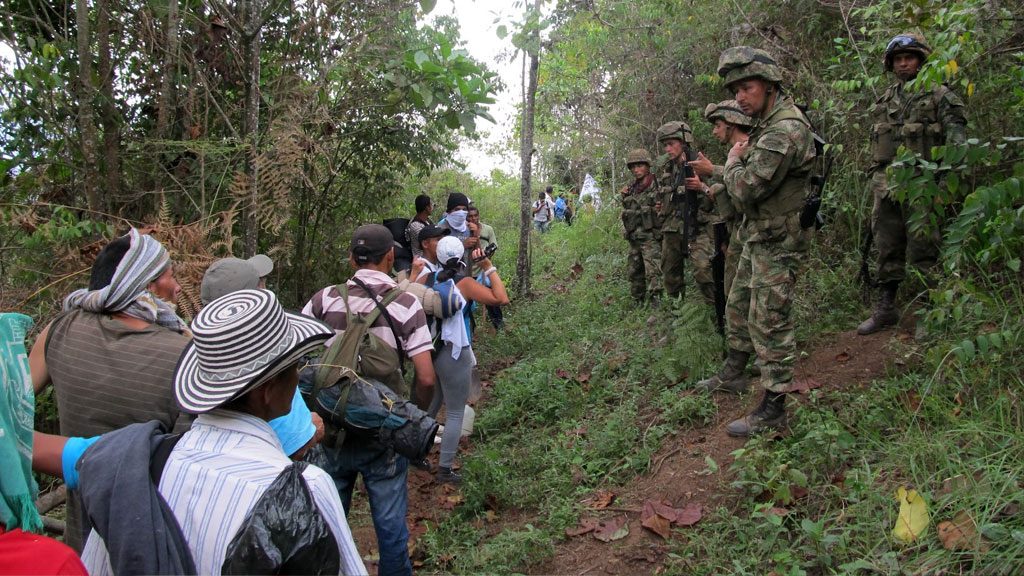Military operations against Colombia’s most wanted drug lords, “Otoniel” and “Megateo,” have displaced more than a 1,000 people this week.
According to reports, locals in the provinces of Norte de Santander and Antioquia have been forced to leave their homes as a result of the violence caused by Colombia’s separate operations against the bosses of the Urabeños and EPL.
‘Operation Rastrillo’
According to newspaper El Espectador, at least 300 locals in the rural region of Catatumbo, North Santander, have been displaced since Colombia’s police and military began operations Sunday against “Megateo”, leader of a splinter rebel group in the north of Colombia.
According to a member of the Rural Association of Catatumbo, tens of families have been forced to seek refuge in the town of La Playa de Belen out of fear.
Homes have been shot at and a forest fire caused by gun shots has consumed more than 200 hectares of vegetation and cultivated land according to reports.
Although the locals are reported to support the government, they blame the authorities for making their communities victims of the armed attack between the authorities and the insurgents.
‘Operation Agamenon’
In the northern province of Antioquia where “Operation Agamenon” against “Otoniel” has been underway since January, reports say that 710 people from the Embera Eyabida indigenous community have been forced to abandon their settlements.
UN reports say that 460 of the displaced moved to lower, protected areas out of fear of the combat between government forces and “Otoniel’s”, “Usuga Clan”
The presence of these armed groups has prevented the remaining 250 people from carrying out activities that sustain their communities.
It has been reported that the number of displaced people could rise, and spread to urban areas.


